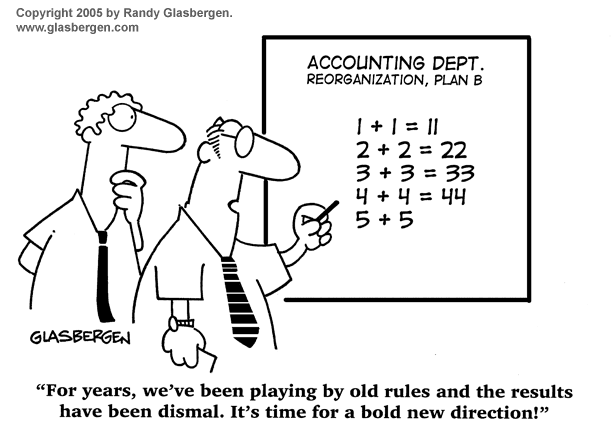

Debt: How Much is Enough?
 I was talking to my friend Frank the other day and I made a comment about people’s willingness to borrow money just because there was a willing lender an easy click away. Frank said to me “Just because you can service the debt it doesn’t mean that you should take on the debt.”
I was talking to my friend Frank the other day and I made a comment about people’s willingness to borrow money just because there was a willing lender an easy click away. Frank said to me “Just because you can service the debt it doesn’t mean that you should take on the debt.”
Now maybe you are going to tell me that isn’t really an insightful comment but to me it was a clever way to sum up an important philosophy that seems to be getting lost as we move decades past the Great Depression. I am not sure this commentary can save the 50-year-old mired in debt – but maybe we can help get the next generation on the right path before they max out three different credit cards.
Before we go too far, I need to be honest that when I was young I spent most of the money I made. I was fortunate when I was single that my only fixed commitments were rent, half a landline from Bell (that is right, before cell phones you needed something called a landline) and food and beverages. It was a simple life and because I was making a decent buck it left cash every month for ‘shopping therapy.’ Somewhere along the way that ‘habit’ of spending money to get an emotional high went away – that story a little later.
What worries me today is that people are mortgaging their future and becoming a slave to their debt. Worse, they are teaching their children this way of life and slowly ingraining in them the terrible habit of ‘I see it, I want it, I will pay later.’ There seems to be little pride in spending less than you earn and building a nest egg for troubled times and retirement.
How did this happen? To be honest I just don’t know for sure – and my limited success in Sociology 101 probably means that I am not the best guy to investigate this question. All I can come up with is that the shrinking middle class is a reality. People who expected to be destined for a middle-class lifestyle are buying it for themselves whether they can afford it or not. Setting out to do better than your parents is a common desire – unfortunately for many of today’s workers they are unable to find the employment income to deliver that result. The outrageous housing prices in some of our big cities certainly exacerbates the problem.
What is the answer? There seems to be two opposing approaches to this problem. The first is where we waive the white flag on expecting individuals to be responsible for their own finances and we instead turn to the government to manage our collective needs and debt – redistributing wealth from the productive to the unproductive so everyone can have a decent lifestyle. The opposite approach is to expect people to take responsibility for themselves and bolster our efforts for financial literacy so that people learn to ‘live within their means.’
I much prefer the latter approach for two reasons. First, it is the road I took and I feel cheated for the government to step in and change the paradigm that built Canada. Second, I really think that capitalism (with appropriate government controls) is a much better way to organize an economy than socialism or communism (my visit to Cuba a few years ago and what we see going on in Venezuela today is compelling evidence). But admittedly it has been almost a decade since Don Stewart was appointed the chair of Canada’s Task Force on Financial Literacy and I am not sure if we have made any progress on the important component of my solution – financial literacy.
I was talking to my friend Rick about this difficult problem that so many seem to struggle to solve. His answer, he said “you either need a good offense or you need a good defense.” As I reflect, I have been playing offense my entire life – trying to get an education (still learning) and working to increase my value to others and grow my income. On the other side of the coin, I married a partner that plays great defense. In addition to curing me of my need for ‘retail therapy’ (now I read for pleasure) she also helped clarify in my mind the difference between ‘need’ and ‘want.’
It turns out I don’t need much (other than a good set of golf clubs and access to the golf course). In the end, my biggest want is for my children to be healthy, safe, and financially secure. The irony is that living a frugal life and imparting to my kids the philosophy of ‘save first – spend second’ not only puts them on the right track, it keeps me on the right track too.
I started by asking ‘how much debt is enough?’ Some argue that mortgage debt or student loans can be ‘good debt’ because the debt finances investments that yield much better returns in the long-term. It is hard to argue against that basic financial tenant. However, when the borrowing is for a house that is bigger than it needs to be or for which the payments are virtually unaffordable then the borrower is headed for trouble. Likewise, if the student loans finance an unnecessarily expensive or economically unrewarding education then the borrower has moved from ‘wise investment’ to ‘discretionary expense.’ While I don’t want to say that any borrowing is bad borrowing – I think individuals need to take great caution in limiting the borrowing within their means and for the best possible ‘investments’ rather than ‘expenses.’



Comments
3